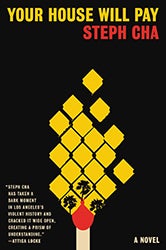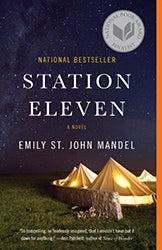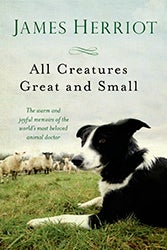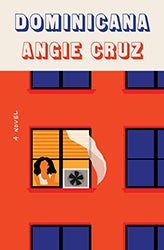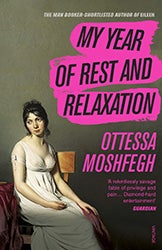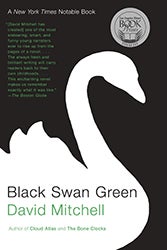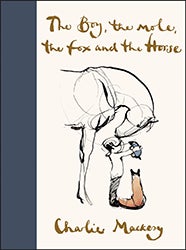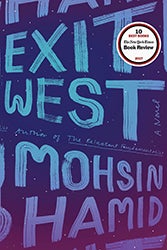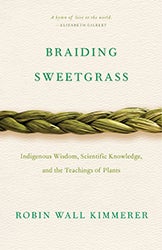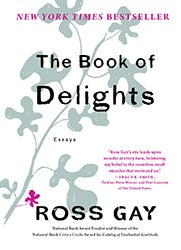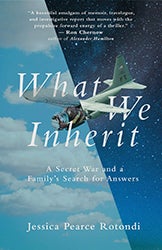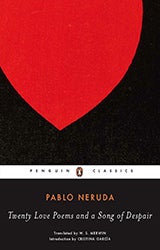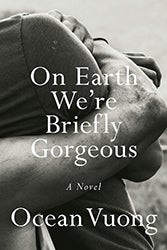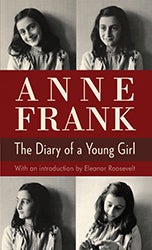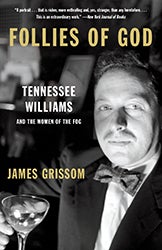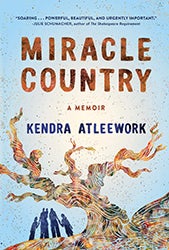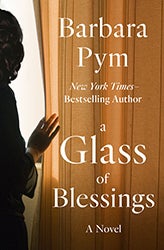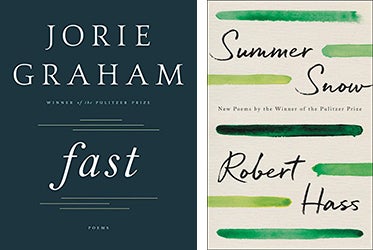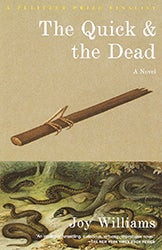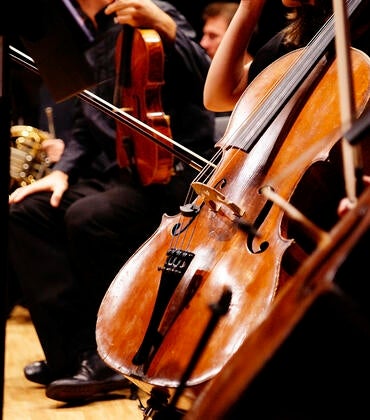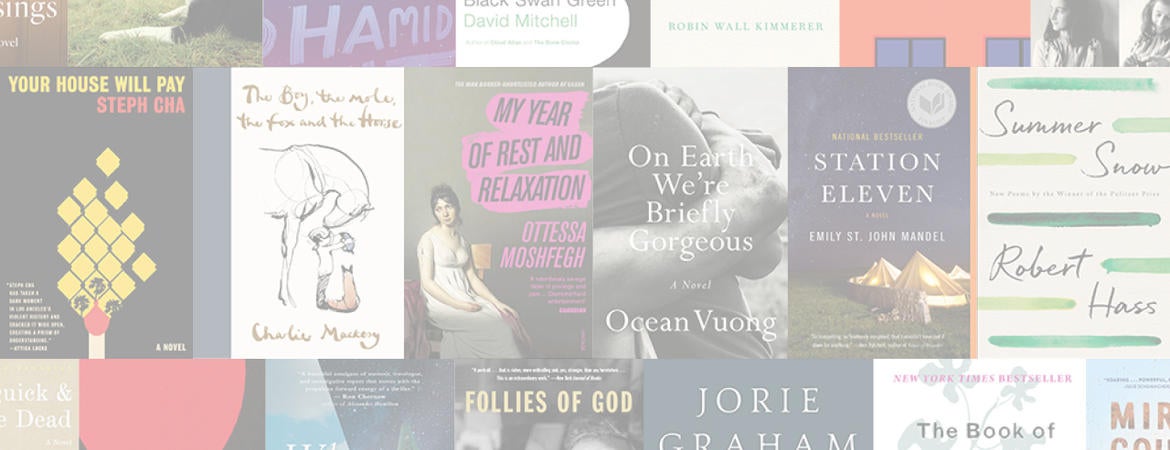
W
Tod Goldberg
Director, Low-Residency MFA in Creative Writing & Writing for the Performing Arts
“Your House Will Pay”
By Steph Cha
In times of trouble, I find myself returning to crime fiction, both for pleasure and for edification, since the essence of crime fiction is that someone walks into the center of chaos and rights the wrongs, all while holding a mirror up to society. I can't think of a crime novel I've enjoyed more recently than Steph Cha's “Your House Will Pay.” It's a tantalizing mystery that touches the very heart of our region but also, since we're all cooped up in our houses, it's fun to watch Cha take her characters across Southern California, back when the freeways were crowded and the restaurants were open.
Goldberg is a professor of creative writing. His next book, “The Low Desert,” will be released in 2021.
Susan Straight
Distinguished professor of creative writing
“Station Eleven”
By Emily St. John Mandel
I taught Emily St. John Mandel's novel of pandemic and survival, “Station Eleven,” last year, for a class I created called Road Trip Novels. It was terrifying, as a flu originating in Russia travels on airlines all over the world within a short time, devastating the population of the planet. Survivors form small bands or colonize former shopping centers in towns and suburbs. My class and I were obsessed with this question: where are humans better off in a pandemic? Big cities, suburbs and exurbs, or rural communities?
Now, I'm re-reading it alone, on my porch, grateful for my huge network of neighbors, family and friends, who all take care of each other. A place like Riverside, as my class and I decided, or many of the other California communities where our students live — Whittier, El Monte, Fresno, Tustin, Santa Ana, Fontana — has those kind of networks.
Straight a distinguished professor of creative writing and is the author of eight novels including “Highwire Moon” and “A Million Nightingales.” Her debut memoir, “In the Country of Women,” was published in August 2019.
Padma Rangarajan
Assistant professor of English
“All Creatures Great and Small”
By James Herriot
Herriot's stories of his veterinary practice in 1940s Yorkshire are ideal for stress relief. Herriot's mostly hilarious, sometimes touching accounts of caring for sick and injured animals are simultaneously narratives of perseverance and quiet heroism, as we also learn about the difficulties of farming and rural life. Herriot's beginning as a new vet and his adjustment to the Yorkshire dales are the threads that bind these stories together. Herriot's prose is easy and soothing, making the book one that appeals to children, adults, and animal lovers.
Rangarajan is currently working on a monograph entitled “Thug Life: The British Empire and the Birth of Terrorism.”
Armando García
Assistant professor of English
“Dominicana”
By Angie Cruz
Angie Cruz’s newest novel, “Dominicana,” is perhaps the most beautifully written book I have read in years. Inspired by the author’s mother, “Dominicana” tells the story of Ana Canción, a young girl from the Dominican Republic forced to marry a much older man in order to help her family migrate to the U.S. Ana arrives in New York City in 1965, and she is catapulted into a turbulent new world where she is forced to live in confinement. Ana’s life is not bound by four walls, however, even if she is physically confined to them.
As you read “Dominicana,” Cruz weaves together a story where Ana learns to love, to desire, and to live in freedom. When I taught “Dominicana” in my Latinx literature class this past November, my students were thoroughly enveloped by Cruz’s writing. Her novel narrates the history of immigration as it is experienced by the migrant women most often left in the shadows of history. I could not recommend a more important novel for today’s world.
García's most recent essay, “Disposable Subjects: Staging Illegality and Racial Terror in the Borderlands,” can be found in the journal Critical Philosophy of Race.
Susan Zieger
Professor of English
“My Year of Rest and Relaxation”
By Ottessa Moshfegh
I recommend Ottessa Moshfegh's 2018 novel “My Year of Rest and Relaxation.” Its nameless antihero undertakes an absurd project, to overcome her past trauma by sleeping for a year and awakening to a brand-new life. It's a hilarious and heartfelt satire on the great American tradition of self-medication and includes the funniest and most appalling psychotherapist in the pages of recent fiction. However you've been spending your days under quarantine, it will make you feel better about it.
Zieger is the author of “Inventing the Addict” and “The Mediated Mind.” You can read her full review of Moshfegh's book in Public Books.
Michael Jayme
Associate professor of creative writing
“Black Swan Green”
By David Mitchell
This past month, I've found myself drawn back to David Mitchell's novel “Black Swan Green.” It tells the coming-of-age story of a 13-year-old boy in early 1980s England, and I've found it comforting on many levels, even though it might not seem that way at first. In it, we experience a year with a boy working toward many "firsts": first encounters with romance, first glimpses of parents as flawed people, first gleanings of the privilege his life affords him. But right now, with so much uncertainty around us, it also feels important to be with a story about overcoming imposing challenges and letting go of past models of life. This is a book about having the courage to emerge into newness, new and perhaps unforeseen identities, new ways of being in the world.
Jayme teaches creative writing and is a graduate student advisor. Most recently, he was a contributor to the collection “East of East: The Making of Greater El Monte.”
Elizabeth Crane
Core faculty member, UCR Low-Residency MFA program
“The Boy, The Mole, The Fox, and The Horse”
By Charlie Macksey
I have the perfect book, which was given to me as a gift recently, and made me laugh and cry in the best possible way. It's a book that's good for readers of all ages, a book that keeps it simple, a book with gorgeous illustrations, a book you can read in one sitting and then read it again: “The Boy, The Mole, The Fox, and The Horse” by Charlie Macksey.
Crane is the author of “Turf” and “We Only Know So Much,” which is now a feature film.
Katherine Kinney
Associate professor of English
“Exit West”
By Mohsin Hamid
I fell in love with Mohsin Hamid’s novel “Exit West” when it came out in 2017 and have literally begged everyone I know, including my students, to read it. It tells the story of a young couple living in an unnamed country (one much like Syria) in which civil war is encroaching on their city. Rumors of magical doors offering passage to somewhere else begin to circulate and then prove to be real. We follow Nadia and Saeed through a sequence of migrations from their home to Greece and then to London and on to Marin County, California. The characters defy assumptions about refugees from the Middle East and migrants everywhere. The prose is eloquent; the narrator has a dry wit and poetic wisdom. It’s simply a very, very good novel. It also seems a good time to think about movement as a fundamental human need and right.
Kinney recently published “Facing the Camera: Black Actors and Direct Address in 1960s Independent Film” in the Journal of Cinema and Media Studies (Fall 2019).
Michelle Raheja
Associate professor of English
“Braiding Sweetgrass: Indigenous Wisdom, Scientific Knowledge, and the Teaching of Plants”
By Robin Wall Kimmerer
“Braiding Sweetgrass,” by Anishinabe/Potawatomi botanist, mother, writer, and scholar Robin Wall Kimmerer, is the book I've been teaching and rereading to feel calm and inspired during this pandemic. It's a book meant to be read slowly, so I've assigned a few chapters from it spread out over the quarter to students in my class. In it, Kimmerer invites the reader to radically reconceptualize our relationship to our immediate surroundings and to everything we’ve ever thought about nature; to question the objectivity and truth of scientific discourse; to value Indigenous knowledges, experiences, histories, and futures; to enact change that will lead to less environmental destruction and fewer pandemics like this one; and to model what decolonial thought and practice embodies.
“The Book of Delights”
By Ross Gay
I would also recommend Ross Gay's “The Book of Delights,” a series of essays chronicling the author's year-long musings on the joys and heartbreaks he observes around him. Like Kimmerer, this book also delves deeply into the mysteries and pleasures of nature and has served as a model of writerly practice I'm trying to engage in while staying at home.
Raheja is currently working on a book project that examines representations of cannibalism in literature and visual culture by Indigenous feminists. One of her chapters is a musing on the relationship between Physarum polycephalum, a slime mold exhibited at the Paris Zoo in 2019, and the Haudenosaunee creation story.
Mark Haskell Smith
Core faculty member, UCR Low-Residency MFA program
“What We Inherit: A Secret War and a Family's Search for Answers”
By Jessica Pearce Rotondi
It may be awhile before we can travel internationally, so I'm reading “What We Inherit” by Jessica Pearce Rotondi. Part spy story and part memoir — with a healthy dose of history that reads like a political thriller — it's an account of what happens when the author finds a box of declassified CIA documents, letters, and maps that reveal her mother's life-long search for her brother, an airman shot down over Laos during the U.S. military’s illegal incursion during the Vietnam War. Salman Rushdie calls it “exceptional.”
Haskell Smith is the author of six novels, most recently “Blown,” as well as the nonfiction books “Naked at Lunch” and “Heart of Dankness.”
Allison Hedge Coke
Distinguished professor of creative writing
“Twenty Love Poems and a Song of Despair”
By Pablo Neruda (as translated by W S Merwin)
In times of trouble, love holds the key to coping with despair. No one does love like Neruda. This collection, from his youth, holds both between the covers, coaxing us to sleep with solace while understanding far more in the world.
Hedge Coke is currently serving as the Dan & Maggie Inouye Distinguished Chair in Democratic Ideals at the University of Hawai’i - Manoa. She is a poet and writer whose recent books include “Burn” and “Streaming.”
David Ulin
Core faculty member, UCR Low-Residency MFA program
“On Earth We Are Briefly Gorgeous”
By Ocean Vuong
My book recommendation would be “On Earth We Are Briefly Gorgeous” by Ocean Vuong — an autobiographical novel, told in fragments and written by a young man to his mother, who cannot read. The language is beautiful, the insights fresh, and the structure miraculous in how it surprises us while also inviting us in. I'm teaching it to my UCR students this quarter.
David L. Ulin is the author of “Sidewalking: Coming to Terms with Los Angeles.”
Steven Axelrod
Distinguished professor of English
“Snow-bound”
By John Greenleaf Whittier
For a really positive take on self-isolation, I'd recommend John Greenleaf Whittier's long but lovely poem of sheltering in place called “Snow-bound.” You can find it online or in any collection of Whittier's work. It was universally read in the 19th century as an idealized vision of family interdependence but is rarely read today. It's a sustaining poem for the times, and its message of kindness is still highly pertinent.
“Anne Frank: The Diary of a Young Girl”
By Anne Frank
For a far more dire but still highly meaningful reflection of self-isolation, I'd recommend “The Diary of Anne Frank.” It's a chilling disclosure of conditions worse than our own, but also filled with life, hope, and kindness, at least until the end.
***
Finally, perhaps more frivolously, I'd recommend Edgar Allan Poe's short story “The Masque of the Red Death,” which is perhaps a little too close to home, and the Tom Hanks film “Cast Away,” which is always entertaining and never so relevant as now.
Axelrod is editor of “The New Anthology of American Poetry” (three volumes, Rutgers Univ. Press) and of a forthcoming edition of Robert Lowell's unpublished memoirs (Farrar, Straus & Giroux).
Deanne Stillman
Core faculty member, UCR Low-Residency MFA program
“Follies of God: Tennessee Williams and the Women of the Fog”
By James Grissom
Nowadays, and often, even though it came out just a few years ago, I turn to “Follies of God” by James Grissom. Tennessee's work has been an important part of my life and writing, and this book is essential because it was written at the behest of Williams, at a time in his life when he was beginning to wonder if he mattered. So he asked Grissom to visit the great actresses who had been in his plays and ask them. This book is about their recollections and is also a portrait of Tennessee. “We live in a perpetually burning building,” he once said. “And what we must save from it, all the time, is love.” This book is a prayer and a map — for any of us, especially right now.
Stillman's latest book is “Blood Brothers: The Story of the Strange Friendship Between Sitting Bull and Buffalo Bill.”
Alex Espinoza
Tomás Rivera Endowed Chair in Creative Writing
“Miracle Country”
By Kendra Atleework
I recently finished a beautiful memoir by a debut author named Kendra Atleework. It's called “Miracle Country,” and the writer's geography is the Eastern Sierra region of California, an often-misunderstood and overlooked area of our state. Atleework writes in prose that is stark, original, and evocative about gale-force winds, snow-covered granite peaks, wildfires, and drought with deft and courage. Combining extensive research with her own family's poignant history, this book is about resiliency, the strength of the human condition, and the unbreakable bonds that tie us to family and place.
Espinoza's latest book is “Cruising: An Intimate History of a Radical Pastime.”
Jill Essbaum
Core faculty member, UCR Low-Residency MFA program
“A Glass of Blessings”
By Barbara Pym
This is one of those books that I come back to time and again simply for the pleasure of reacquainting myself with the characters and immersing myself in Pym's taut language and apt descriptions of the quotidian experience of a 1950s British housewife who despite her comfortable lifestyle (or perhaps because of it) has grown bored. It's a quiet novel, an uncomplicated and yet quite amusing exploration of the unmet needs of an ordinary woman's inner life. I love all of her books, but this is the one I return to most often. Her writing is a joy to read.
Essbaum is the author of several collections of poetry including “Heaven,” “Necropolis,” “Harlot,” and most recently the single poem chapbook “The Devastation.”
Katie Ford
Professor of creative writing
“Fast”
By Jorie Graham
“Summer Snow”
By Robert Hass
Within a span of two weeks this February, two beloved teachers of mine from 20 years ago — Jorie Graham and Robert Hass — were in the Los Angeles area, and I was able to attend both of their poetry readings.
Now that none of us can be together, and now that none of us knows the length of a life, which is just as it was before, I revisit their poems and remember that, in difficult times, I don’t want poems that shy away from difficulty, I want poems that speak to it. Graham’s most recent collection, “Fast,” and Hass’ “Summer Snow” never resolve what cannot be resolved. They attend to it, they write toward it, and, above all, they create something out of nothing. I read them to be reminded I should try to do the same.
Ford is the author of four books of poems, most recently, “If You Have to Go.”
Mary Otis
Core faculty member, UCR Low-Residency MFA program
“The Quick and the Dead”
By Joy Williams
After many years, I recently reread Joy Williams' novel, “The Quick and the Dead” because I find her beautiful, fierce, and comic prose deeply satisfying and a great literary remedy for these challenging days.
Otis is the author of the short story collection “Yes, Yes, Cherries.”
Tom Lutz
Chair, the Department of Creative Writing
There is no reason to go far afield to find great books to read, as we grow a lot of them right here.
Susan Straight's “In the Country of Women” (2019) was named one of the best books of the year by NPR and Kirkus, and praised by Joyce Carol Oates, Janet Fitch, Viet Thanh Nguyen, and many others. It is the story of Straight's family and extended family and three daughters in Riverside, and a moving meditation on women's lives over the last century.
Leila Lalami's “The Other Americans” was a 2019 National Book Award Finalist. The novel follows a diverse cast of characters after Driss Guerraoui, a Moroccan immigrant in California, is killed by a speeding car as he is walking across a darkened intersection. As the characters tell their stories, the invisible connections that tie them together — even while they remain deeply divided by race, religion, or class — are slowly revealed.
Alex Espinoza's first work of nonfiction, “Cruising: An Intimate History” (2019) was published last year, and this year his “Five Acts of Diego Leon,” about a Mexican actor in the early days of Hollywood, was published in paper for the first time.
Nalo Hopkinson's “House of Whispers” (2018) comics series presciently follows the progress of a pandemic.
John Jennings has just adapted the incomparable Octavia Butler's “Parable of the Sower” to graphic form (2020).
Steve Erickson’s “Shadowbahn” (2018), an alternative history road novel, was named a best book of the year by the LA Times.
Charmaine Craig's “Miss Burma” (2017) was longlisted for the National Book Award as well, and is loosely based on her own beauty-queen-turned-guerilla-leader mother.
For poetry lovers, we have Allison Benis White's “The Wendys” (2020) just published last month, Allison Hedge Coke's “Streaming” (2014) and the anthology “Effigies III” (2019), Katie Ford's “If You Have to Go” (2018), Sara Borjas's “Heart Like a Window, Mouth Like a Cliff” (2019), and Rachelle Cruz's “God's Will for Monsters” (2017).
Reza Aslan's New York Times bestseller “God: A Human History” (2017) continues his inquiry into the world's religions.
Josh Emmons’ latest is a collection of very varied short stories: “A Moral Tale and Other Moral Tales” (2017).
For a deep dive into the 20th century, read Jane Smiley's magisterial “The Last Hundred Years” trilogy, “Some Luck,” “Early Warning,” and “Golden Age,”; for a deep dive into the art world, read Andrew Winer's “The Marriage Artist”; and for a deep dive into El Monte, read Michael Jaime-Becerra's “This Time Tomorrow.”
And yours truly has a literary thriller titled “Born Slippy” (2020) if you like to read about bad men behaving badly.
Lutz is a professor of creative writing and author of several books of nonfiction including “Drinking Mares Milk on the Roof of the World” and “Doing Nothing.” “Born Slippy,” published January 2020, is his debut novel.
